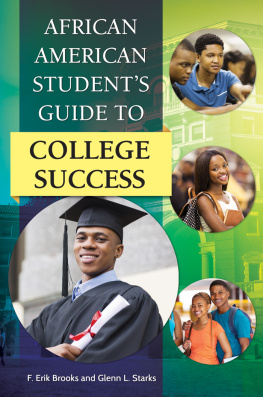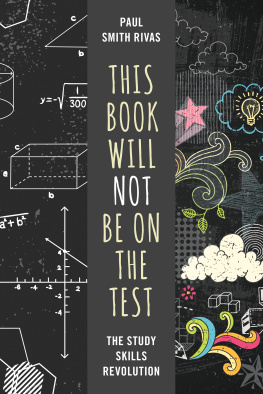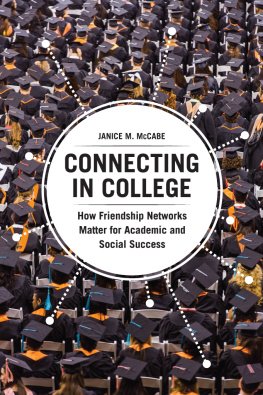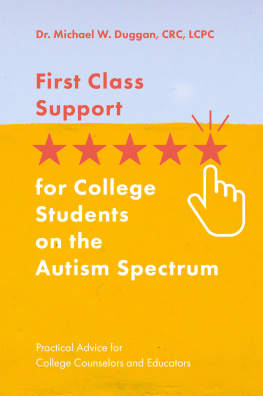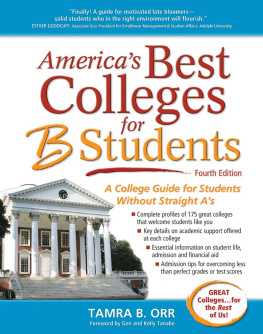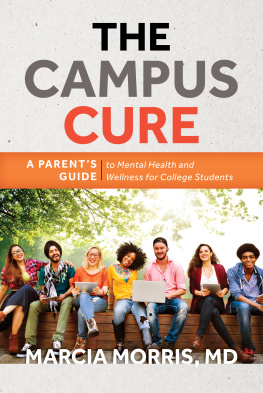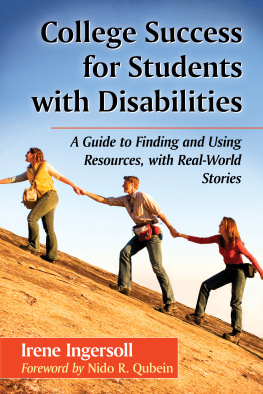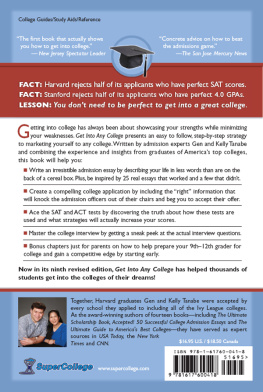Making College Work
Pathways to Success beyond High School
Harry J. Holzer
Sandy Baum
BROOKINGS INSTITUTION PRESS
Washington, D.C.
Copyright 2017
THE BROOKINGS INSTITUTION
1775 Massachusetts Avenue, N.W., Washington, D.C. 20036
www.brookings.edu
All rights reserved. No part of this publication may be reproduced or transmitted in any form or by any means without permission in writing from the Brookings Institution Press.
The Brookings Institution is a private nonprofit organization devoted to research, education, and publication on important issues of domestic and foreign policy. Its principal purpose is to bring the highest quality independent research and analysis to bear on current and emerging policy problems. Interpretations or conclusions in Brookings publications should be understood to be solely those of the authors.
Library of Congress Cataloging-in-Publication data
ISBN 9780815730217 (pbk : alk. paper)
ISBN 9780815730224 (ebook)
9 8 7 6 5 4 3 2 1
Typeset in Sabon
Composition by Westchester Publishing Services
Contents
Acknowledgments
We are grateful to the Smith Richardson Foundation for providing funding that made it possible for us to write this book. Senior Program Officer Mark Steinmeyer provided very helpful guidance as we developed our ideas. The Bill and Melinda Gates Foundation also offered support.
We would also like to thank the many other people who made the writing and publication of this book possible.
First, several individuals read the manuscript and provided helpful comments. They include Tom Bailey, Charles Clotfelter, Lauren Eyster, Katherine Hughes, Lou Jacobson, Mike McPherson, David Baime, and an anonymous reviewer.
Second, we had extremely helpful conversations with leaders of community colleges who informed our thinking a great deal. These leaders include Jim Jacobson (president of Macomb Community College in Michigan), Ken Ender (president of Harper College in Illinois), Gail Mellow (president of LaGuardia Community College in New York), and Rolando Montoya (provost of Miami Dade College in Florida).
Third, we thank Kennan Cepa, Yessica Yang Choi, and Chenxi Lu for excellent research assistance. Kennan helped us generate the statistical estimates of postsecondary effects on earnings for the state of Florida that we used in and Chenxi assisted with analysis of data from the National Center for Education Statistics.
Finally, we thank Bill Finan and Valentina Kalk of the Brookings Institution Press, who guided us through the production process and helped market the book.
Introduction
As a nation, we are making progress in increasing the number of people from disadvantaged backgrounds who manage to enroll in some form of postsecondary education. But the results are discouraging. Many students leave school without any certificate or degree. They have lost valuable time and frequently have student debt to repay, but they have not managed to measurably improve their prospects. Most of the students from low socioeconomic status backgrounds who do succeed in completing their programs of study earn occupational certificates or associate degrees, not bachelors degrees. Some of these credentials yield significant returns in the labor market, but others do not.
The evidence points clearly to the need for significant change. Changes in federal and state policies and in postsecondary practices, particularly at the institutions that serve large numbers of low-income and older students, are central to improving these outcomes. There are unlikely to be any easy answers, and solutions will involve both using existing resources more effectively and devoting more resources to the effort. But there is strong evidence that some of the innovations that have been implemented on a small scale could make a real difference for many more students.
Reforming the postsecondary experience is necessary but not sufficient. Over the long run, reductions in the economic and educational inequality throughout society should reduce the gaps in preparation for college. But given the current realities of socioeconomic inequality and inadequate elementary and secondary education for disadvantaged students, many recent high school graduates and older adults have such large gaps in their academic preparation, and so many other challenges to successful degree completion, that other routes to remunerative careers may hold more promise for them. Strengthening career and technical education in high schools, apprenticeship opportunities, and other routes to occupational success outside of postsecondary institutions is a necessary part of the solution.
This book explores this reality, seeking explanations for our failure to provide pathways to success for such a large segment of the population and evaluating potential policy reforms that could improve the lives of many Americans.
The Importance of Postsecondary Education
As is well known, it has become difficult for workers to succeed in the American job market without some type of college credentialwhether it is a bachelors degree, an associate degree, or an occupational certificate. In an era when the earnings of most American workers have been stagnant or declining, less-educated workers have fared worst. A high school education no longer provides a reasonable chance for earnings that can support a family. Improving educational attainment is widely seen as a mechanism for improving living standards and moving more people into the middle class, where they can expect some level of economic security.
Political leaders from both major parties have embraced the goal of increasing participation in postsecondary education. For instance, expressing dismay over disappointing college attainment rates in the United States, which have fallen behind those of many other countries around the world, President Obama set a goal that by 2020 America will once again have the highest proportion of college graduates in the world. This is an objective shared by many members of Congress, as well as state and local officials. The president also called for community college to be tuition-free, in an effort to make the first two years of postsecondary education as universally available to young Americans in the twenty-first century as high school became in the twentieth century. In 2014 the state of Tennessee implemented a policy of tuition-free community college for qualifying recent high school graduates; Oregon followed suit in 2015; other states are in the process of implementing similar policies. That Republicans dominate the Tennessee state house and legislature makes it clear that the interest in expanding access to college and reducing its price is bipartisan.
Indeed, many scholars and policymakers share a strong belief that improving educational attainment and skill acquisition for all Americans, particularly those from low-income backgrounds, is essential for a healthy economy. In other words, in addition to promoting equity through economic opportunity for all and upward social mobility for the poor, economic efficiency is at stake. Higher education can improve peoples lives in many ways, and getting a good job is only one of the numerous good reasons to go to college. But for many, and particularly for those from disadvantaged backgrounds, stable and well-paying employment afterward is often a primary motivation for attending college.
Many low-income youth and adults are following the advice they hear to go to college. As shown in
A small fraction of disadvantaged students manages to enroll in selective four-year institutions, while a larger number attend broadly accessible public four-year colleges and universities. But a majority of them, including many who have weak academic backgrounds, attend community colleges and for-profit institutions. The for-profit sector focuses on specific occupational programs, while community colleges provide similar programs in addition to more traditional academic courses designed to facilitate transfer to four-year colleges.
Next page


